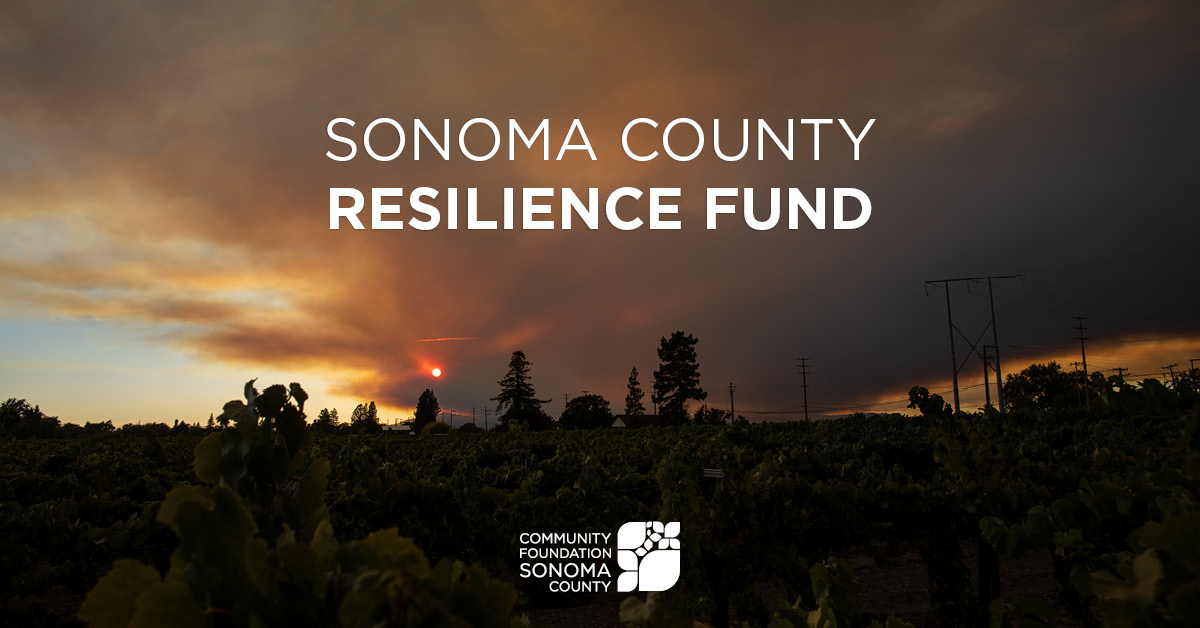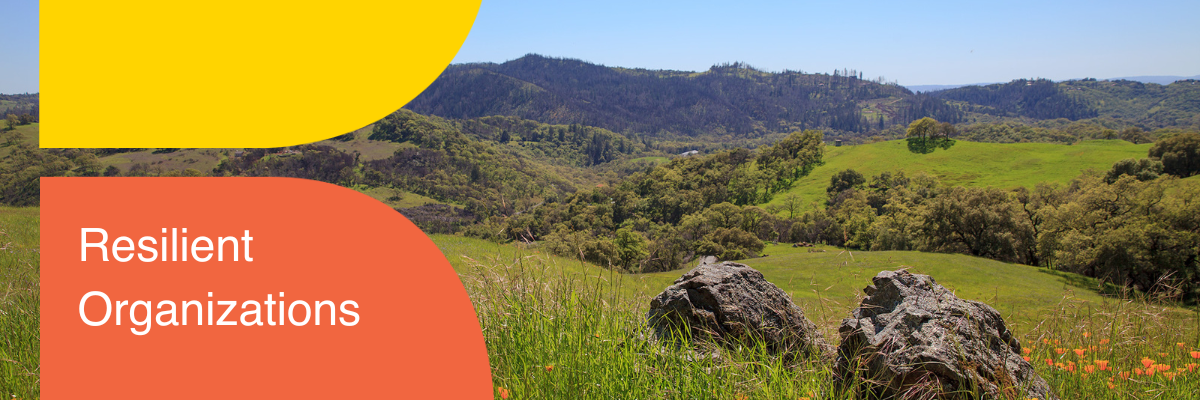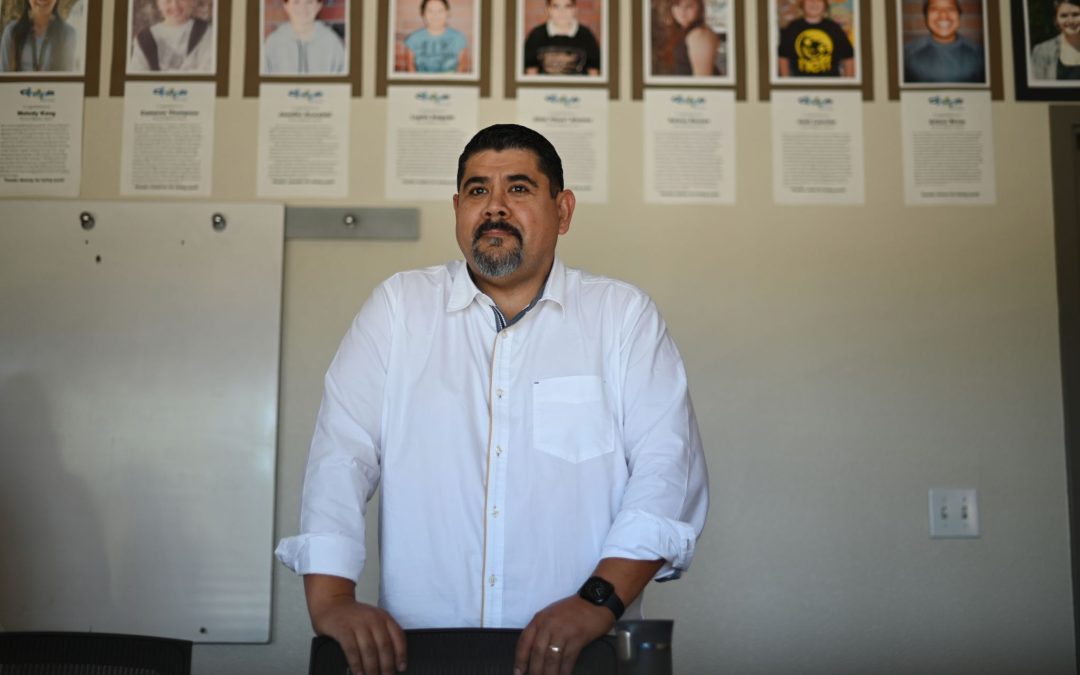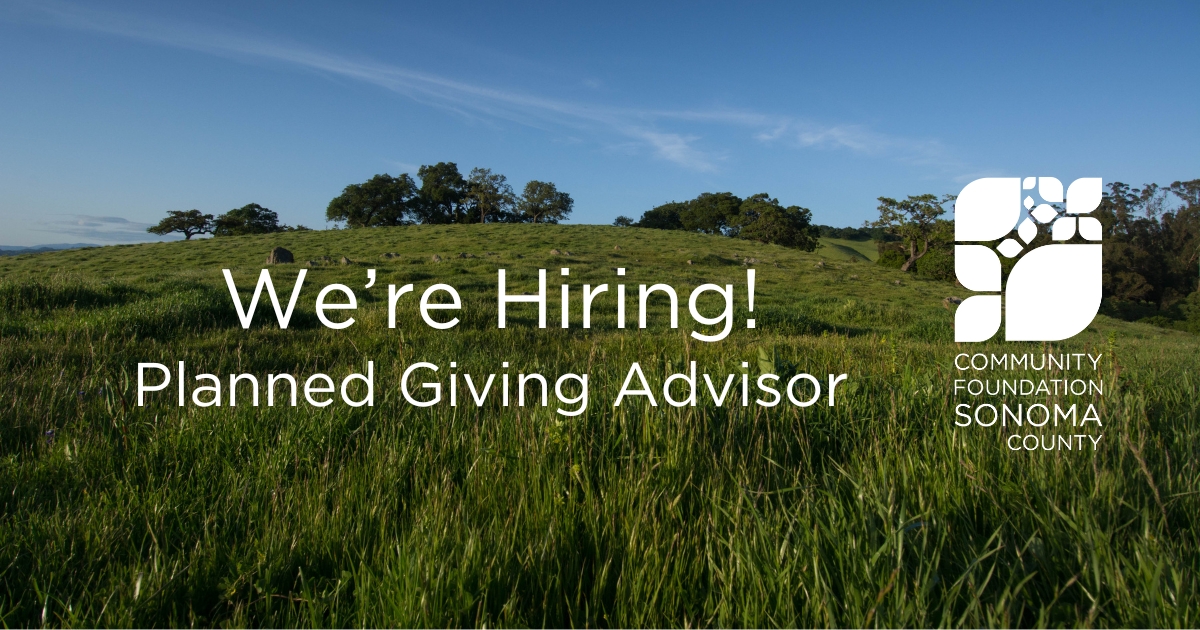Since inception in 2017, we have supported local disaster recovery efforts through grants nearing $10 million.
Community Foundation Sonoma County (CFSC) first launched the Sonoma County Resilience Fund in the wake of the 2017 fires, with a mission to help support our community’s mid- to long-term recovery from the disaster. Today, We have granted nearly $10 million in grants to nonprofit organizations helping individuals impacted by disaster, healing the long-term effects of trauma, creating housing solutions for our community, and improving Sonoma County’s emergency preparedness.
“Our Resilience Fund efforts are ongoing,” says Elizabeth Brown, President and CEO. “As we face the compounded challenges of the LNU Lightning Complex Fires and the coronavirus pandemic, the nonprofit organizations working as secondary responders need our support now more than ever.”
Sonoma County has seen unimaginable hardship these past three years. A fire that destroyed over 5,300 homes in 2017, flooding and fire in 2019, and now the back-to-back burden of the coronavirus and Lightning Complex Fires coming at the same time.
The compounding effects of these disasters on our most vulnerable community members—people living on the economic brink, those who are homeless, undocumented people with limited English, and others, cannot be overstated.
“Disasters like this expose the inequities that already exist in our community and leave behind those who least able to recover. In short, disaster discriminate,” explains Brown. “Through the Resilience Fund we are focused on helping ensure that no one is left behind by disasters.”
In addressing the LNU Lightning Complex Fires, CFSC is working closely with the Sonoma County Community Organizations Active in Disaster (Sonoma County COAD), a coordinating group for nonprofit organizations working as secondary disaster responders. During active disasters, the Sonoma County COAD operates alongside the Emergency Operation Center to assess urgent needs, identify short-term gaps and gather information that will inform longer-term recovery efforts.
The Community Foundation stands ready to make emergency grants to support urgent needs as they emerge from this newest disaster.
CFSC’s disaster response strategy includes supporting both immediate and long-term needs, by making grants to support:
- Emergency and immediate crisis response efforts to provide basics like emergency financial assistance and food.
- Addressing the long-term and complex impacts of disaster by supporting disaster recovery case management and financial assistance programs, mental health programs focused on trauma, bringing innovative housing solutions into our community, and helping to foster community preparedness efforts.
- Focusing on the long-term impacts of disaster and taking on the compounding effects of back-to-back disasters by providing steady and ongoing support to nonprofit organizations on the front lines of disaster work.
Examples of grants made from the Resilience Fund include:
- 2017 Fires –helping individuals and families recover through case management and financial support through grants to Catholic Charities and Community Action Partnership.
- Kincade Fire –helping stabilize our community through emergency grants to the Redwood Empire Food Bank, Corazon Healdsburg, and more.
- COVID-19 – supporting the economic and health impacts of the coronavirus pandemic through grants to North Bay Organizing Project’s UndocuFund, Humanidad Therapy & Education Services, and more.











